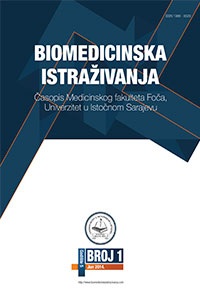Knowledge and frequency of contacts as factors in forming primary school children attitudes towards peers with developmental disabilities
DOI:
https://doi.org/10.5937/BII2101049DAbstract
Introduction. Higher level of knowledge and frequent contacts with
peers with disabilities can influence the emergence of more positive
attitudes of students towards peers with disabilities. In regard to that,
our aim was to test the importance of knowledge, contact frequency
and other possible factors influencing attitudes of students toward
disabled peers.
Methods. The study included 140 students of 4th and 5th grade of
primary schools. The research was conducted in the period from December
2020 to March 2021 in two primary schools. The Chedoke
McMaster scale was used to examine students’ attitudes toward peers
with disabilities, while Contact with Disabled Persons Scale and the
Children’s Knowledge about Handicapped Persons Scale were used
to assess frequency of contact and knowledge about disabilities.
Results. Girls showed a significantly higher level (25.21±6.21) of frequency
of contacts with students with disabilities compared to boys
(19.66±7.30) (p=0.043) and higher level of knowledge (27.88±5.88)
about disabilities compared to boys (25.50±4.69) (p=0.009). Respondents
who attended school together with children with disabilities
(31.07 ± 8.41) showed a significantly higher level of frequency of
contacts with students with disabilities compared to respondents
who did not attend school with peers with disabilities (13.72±6.32)
(p=0.001).
Conclusion. Higher level of knowledge and frequent contacts with
peers with disabilities does not have influence on the emergence of
more positive attitudes of students towards peers with disabilities.

